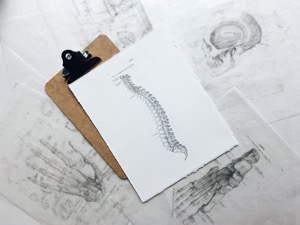- No Fee Unless We Win: (800) 249-3731 Tap Here To Call Us
Back Disability – Back Pain and Spinal Injury Claims

Some form of back disability affects most people at one time or another, inhibiting their ability to work. The bulk of back injuries are short term, and workers can resume their employment. Yet for some, a disabling back injury can turn into a lifetime of pain that tears at the quality of life. Being denied back disability benefits can be frustrating, but an experienced attorney can help you turn that around.
Insurance companies routinely challenge back disability claims. If this has been your experience, it may be time to seek legal help to prove you are indeed disabled. Don’t risk losing your disability benefits on a technicality, or at the hands of a shrewd insurance company or an imperfect government program.
The attorneys at Mehr Fairbanks Trial Lawyers fully understand the reasons, excuses or tactics that insurance companies and government disability programs use to deny claims. We want you to know that you can call on us for answers. To fight back disability claims denied by insurance companies, your lawyer must know exactly what information to provide to meet the insurance company’s threshold for proof of back injury disability.
The insurance company will do their best to deny the claim based on insufficient medical records and many other arguments. Employee long term disability benefits (ERISA) and private disability insurance are governed by very different laws. You need an attorney who is adept at negotiations, complex appeals procedures, and litigation in both state and federal courts.
Types of Back Injuries that Qualify for Disability
A single traumatic event or accident, such as a car accident or a slip and fall, can cause serious back injury including fractured vertebrae or spinal cord damage. Overexertion such as a sudden forceful movement, bending or jerking the back in an unusual manner, or lifting heavy objects can cause severe muscle and ligament damage, and damage to the spinal discs.
While a back impairment may refer generally to an injury or disorder of the back and spine area, spinal injuries are back disorders that entail specific damage to the spine itself, including nerve damage to the spinal cord.
Progressive conditions often result in spinal injury and disability, such as:
- Degenerative disc disease
- Scoliosis (curving of the spine) or other structural deformities
- Spinal stenosis (narrowing of the space through which the spinal cord passes)
- Osteophytes (bone spurs)
- Bulging or herniated discs
- Disc slippage
- Osteoporosis (thinning of bone tissue and loss of bone density)
- Facet arthrosis (wear and tear of the of the facet joints of the spine)
- Sciatica (irritation and inflammation of the sciatic nerve)
Rare yet serious medical conditions causing back disability exists, including:
- Cancer of the spine (spinal tumor within or near the spinal cord, or within the bones of your spine)
- Infection in the spine (caused by bacterial infection, fungus, or tuberculosis.) These infections can attack the vertebrae, the discs, and the spinal canal.
- Cauda equina syndrome, a compression or pinching of the nerves at the end of the spinal cord within the spinal canal. Herniation of lumbar discs, cancer, infections, or localized bleeding can cause this condition.
There are numerous causes of severe back pain. As disability attorneys, we also know that sometimes the treatment for back and spine injuries can worsen the condition. Improper pain medications or treatments can bring on further disabling side effects and debilitating symptoms.
Have you been unfairly denied benefits for back pain and disability?
We can help. If an insurance company has wrongly denied benefits for your back disability claim, request a free consultation with a lawyer now. At Mehr Fairbanks Trial Lawyers, we help people across the United States who are unable to work because of back pain and spinal disorders. Find help today by calling toll-free: 800-249-3731.



















